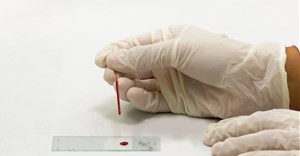Regular screenings provide early warnings

Mammogram for breast cancer
Breast cancer is the most common cancer affecting South African women - 1 in 35 women in the country will be diagnosed with it, according to the Cancer Association of South Africa (CANSA). You should be doing monthly breast self-examinations and, starting when you are age 20, your doctor should manually examine your breasts at your regular check up.
From age 40, if you are symptom-free, have a mammogram (a special X-ray to detect lumps in the breasts) every two years. However, if you have a family history of breast cancer, start screening earlier. Some women are diagnosed with breast cancer in their early twenties, therefore regular screening can help detect it earlier, increasing the chances of successful treatment.
Bone density scan for osteoporosis
Osteoporosis is a crippling weakness of the bones, which can lead to bones becoming more susceptible to fractures - especially of the spine, hips and wrists. Women can lose up to 30% of their bone mass in the five to seven years following menopause and in South Africa, 1 in 3 women will develop osteoporosis, according to the National Osteoporosis Foundation.
Although there are usually no visible symptoms until a bone fractures, a bone density test once every three years from the age of 50 is recommended. Prevention and treatment includes doing regular exercise, taking calcium and vitamin D and other osteoporosis medications, if needed.
Pap smear for cervical cancer
Cervical cancer is a preventable disease which is curable if detected and treated in its early stages. According to the South African National Cancer Registry approximately 1 in 41 women in South Africa will develop cervical cancer.
A Pap smear is a procedure where a tiny sample of cervical tissue is taken to detect cancerous cells or cells that might become cancerous in the future. Sexually active women should consider including a routine Pap smear as part of their regular medical check-up.
Tests for colorectal cancer
Look out for symptoms such as rectal bleeding, a change in bowel habits such as constipation or diarrhoea and abdominal pain, which could be a sign of colorectal cancer. Women in South Africa have a 1 in 150 chance of developing the disease and regular screening tests, such as a colonoscopy from the age of 50 is recommended every 10 years. If there is a history of colorectal cancer or polyps in your family, you are at higher risk and may need to be tested earlier. A faecal occult blood test, which detects small quantities of blood in a sample of stool, is another important way of preventative screening.
Cholesterol and blood pressure tests for heart disease
A simple blood test can measure your cholesterol and assess your risk of heart disease. International guidelines recommend routine screening in women aged 50 years or older and/or in postmenopausal women. If your LDL or "bad" cholesterol measures more than 3 mmol/l, get tested annually. High blood pressure can also be an early indicator of heart disease and kidney failure. If you are 45 or older, overweight, diabetic or if you are a smoker, you are also at increased risk. If your blood pressure is higher than 130/90 mmHg, you may be developing hypertension, so take action as soon as possible.











